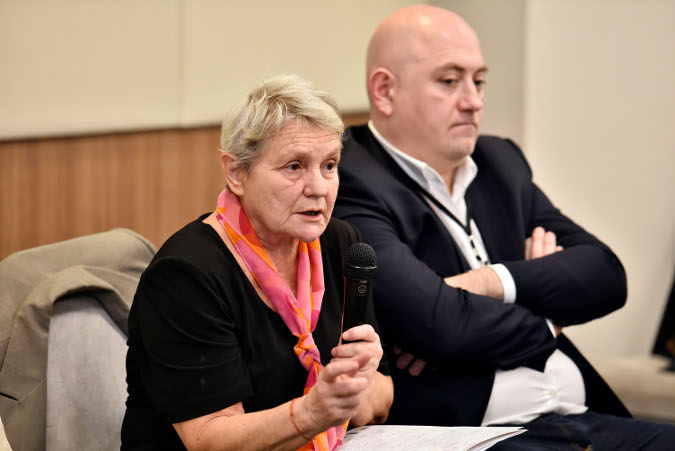In the words of Sonja Lokar: “If there are so few women in politics, who will put on the agenda the priorities that affect women’s lives?”
Sonja Lokar is the Executive Director of the Central and Eastern European Network for Gender Issues and has worked with women activists across all social, ethnic, religious and political divides in 21 countries. She has been a political activist from her youth and is a specialist in political party development, social welfare state issues, and gender issues. She is a feminist and an advocate for women’s human rights in Slovenia and internationally. Lokar recently spoke at the Regional Conference "Parliamentarians for gender equality and women's empowerment," organized by UN Women, UNDP, and the OSCE Office for Democratic Institutions and Human Rights (ODIHR) with the support of the Parliament of the Republic of Moldova and in partnership with the Government of Sweden.Date:

“When I was young, I lived in a socialist country, the former socialist Yugoslavia, and gender equality was a respected value in politics. So, for me it felt right that men and women should be equal. I started to advocate for gender equality when my country became a parliamentarian democracy with market economy. It was then I realized that the rights of women might come under a big question mark.
I also started to view equality as an economic issue, in the sense that all people should have a roof on their heads, have enough to eat, have the right to go to school, have the right to get health services when they need. All of this is connected with how much money you have and for women who always earn less money, who always have less opportunities, this becomes a problem.
Since I was young, gender equality for me has always been an issue of social justice… I think states undermine women’s economic independence by offering teachers, nurses, and all public servants such low wages that they can barely survive on.
Another pressing issue [in Eastern Europe and Central Asia] is the lack of accessible and proper childcare services. It is an issue for women in this region when they want to return to work because they don’t have access to good child care services.
These are elementary questions of equality which must be addressed and cannot be solved if there are so few women in the parliaments and governments. Who will speak for us? Who will put on the agenda the priorities that affect women’s lives? That’s why I believe women’s political participation is crucial. The important question is how to involve courageous women, who can fight for the rights of all women and who are clever enough to survive the pressure of their male colleagues, in decision-making positions.
Women who are not members of political parties should put pressure on parties to create enough space for gender equality policies. If there is pressure coming from the bottom up, parties cannot ignore this demand, especially before the elections. In this case, women who are members of political parties get some maneuvering space to organize themselves in an efficient way and join forces to become a real political agency within the party. If women are not well organized, political parties will never become gender sensitive. And if they don’t have support from the civil society, trade unions, experts, media and international organizations, nothing will change.
When it comes to the issue of quotas, if we want a quota to be effective, it should be properly designed. Firstly, it’s necessary to have strict placing rules. The best arrangement would be to have one woman, one man and so on, the so-called zipper rule. In most countries gender quotas are not designed this way, except for some Nordic countries.
The second principle is that the sanctions for non-compliance must be significant. If a party does not respect the quota, it should be barred from running in the elections. In my experience, fines are not sufficient to discipline political parties to respect the gender quota.
And the third aspect is that women MPs who leave the Parliament, for whatever reason, must be replaced by the next woman in line. This is how you keep the balance. On top of these, with strong political will, gender quotas can be properly enforced.”